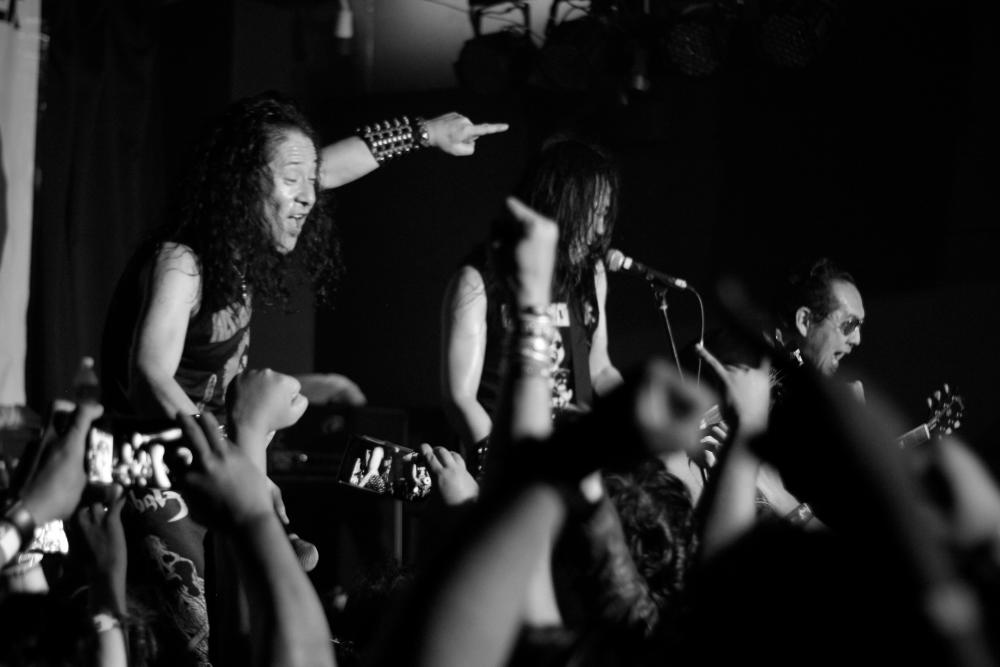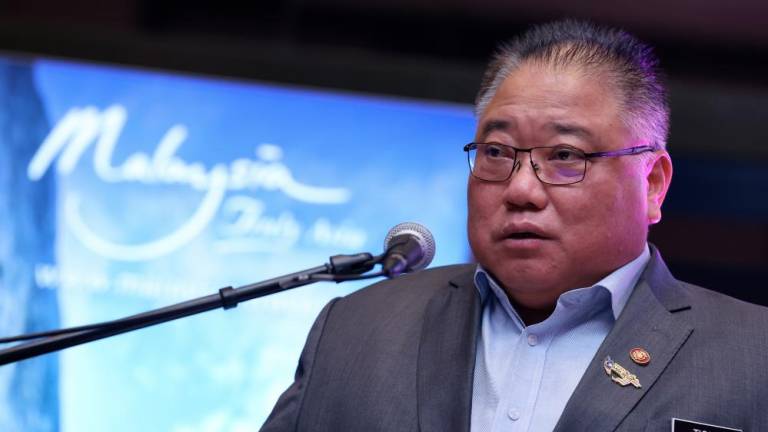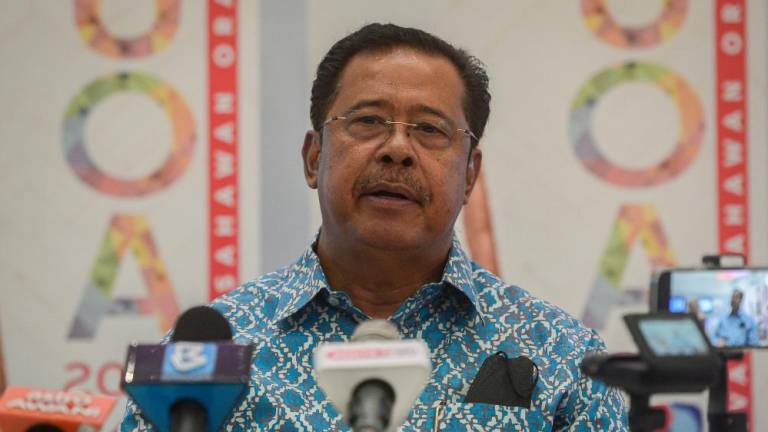DON’T you “just love it” when someone tells you what you should and shouldn’t do, what is right and wrong, effectively taking free will and individuality out of your hands? What if it is an entire group of individuals doing the moral policing? What if it is a whole country playing arbiters of religion?
One of Malaysia’s neighbours recently enforced stricter laws on punishing those from the LGBT community; the unimaginable and inhumane being death by stoning. This move evidently sent shockwaves throughout the rest of the educated world, with many condemning that country’s further descent into extremism.
Yet religious policing is nothing new; is not exclusive to just the aforementioned country; nor is it compartmentalised exclusively just to oppress the LGBT community. Speaking to some Malaysian young adults here, everything past this contains the thoughts and views of a generation that will hopefully propel mankind forward and not take us back to that of the “Dark Ages”.
Perceived deviancy
“Dangerous precedent,” replies Saer, when asked whether the situation in that country sets an example to follow for Malaysia, particularly after the public caning of two women in Terengganu last year. “Already there are Malaysians calling for the same set of laws implemented in that country to be enacted here too. However, I trust that our secular constitution would not allow for that to happen. We are a democracy after all”.
Continuing to speak under anonymity, Saer feels that archaic punishment through shaming and capital punishment should have no place in a modern society, especially for a government that seeks to educate its people towards progress and advancement.
“Educate people with sound truth, not death. It will only cultivate a culture of fear and distrust, which will cause more societal problems,” says Saer, who also believes there should be a line drawn between religion and governing a nation.
“We are regressing and progressing at the same time. I believe the world is more aware now and are working towards the common good; yet, there are those who want to keep the status quo for selfish reasons, in the name of religion.”
She expounds her view about morality, not dictated by religion. “Due to humanity’s self serving interpretations of morality according to religion, and those who use it to regulate others, it has opened my eyes to the greed for power and control over others,” she says.
It has shown me how many people do not accept differences in their communities and deem those who are different, unworthy of compassion and understanding.”
Riffing against the mainstream
Slightly over a month ago, Swedish extreme metal band Watain was scheduled to perform for a crowd of 200 in a closed-door venue within a non-descript area of another neighbouring country. Despite complying to the strict regulations of a specific government body, the performance was cancelled hours before showtime. Local and foreign fans who purchased tickets, had already gathered when the announcement was made to cancel the concert, all whilst more fans trickled in into the evening ... I, among them.
The reason, stated the country’s Home Affairs Minister (in the almost immediate aftermath of the cancellation), was that it was singularly the government’s decision due to “security concerns” and not because of a petition that began circulating a day before. However, on April 1, the Minister backpedalled, claiming it was the petition that caused the Ministry to call off the show.
In short, the petition was initiated by one with strong religious beliefs, obviously on misguided grounds, that the music was offensive to her religion and could become a threat to society and that nation. The act of cancelling the performance flies in the face of that supposedly secularism-run nation and depicts the stranglehold that religion has on the government.
“It felt like a stab in the heart when the show was called-off just moments before it was to start,” said 20-year-old XK, a fan who I met there (who prefers to remain anonymous).
The underground music scene exists in almost every country on the planet, and many go unabated simply because it is “underground” and operates below the radar and out of the margins of mainstream culture. For one reason or another, the Watain event caught the eye of the person that started the petition and the collective hammer of the religious right was swift in smiting it out at the eleventh hour, aided largely by the powers that hold that nation’s office.
“It is alright for people to choose whatever faith they wish to believe in, but don’t judge or impose views on others who don’t follow that faith. I also think one has to maintain a certain degree of autonomy (by not following dogmas and religious authorities blindly) because you see how people can be easily manipulated into madness or atrocity,” XK said when queried on his thoughts regarding religion, its ideologies, and if it meant anything if it were forced.
Is the situation any different in Malaysia?
On home soil, the Council of Churches of Malaysia (CCM) released a press statement in April, questioning the authorities on the greenlight given for a Singaporean metal band to perform in Kuala Lumpur on Easter.
To avoid unnecessary confrontation and escalation, the organisers pulled the plug on the event, which caused an immediate uproar and cascaded within the underground scene, simply because something similar previously happened back in the 2000s (but worse then).
Those in the underground scene could only go deeper to negate further blows on something they loved. Then again, there is a long and storied history of uncommercialised music and the “persecution faced by fans who follow this extremely niche music demographic type”. Attempts to reach CCM for a timely response was unattainable.
“(It is) very repressive and restrictive. Once massified, religion glorifies forced conformity and a herd mentality. Metal promotes individuality because it is a strong and niche form of music with strong values and ethos unknown to the mainstream,” 22-year-old Samuel Chang said in defense of the subculture he feels a stronger connection with compared to the Christian upbringing he was raised in.
Have we come to an impasse?
While Samuel (as far as I’m aware) has no background in psychology, Dr Karim Bettache does, and says: “My own research has shown that one of the reasons for resistance to change is an inherent need for group uniformity. Conservative personality characteristics prefer social groups that are cohesive with strict social norms,” says the Monash University Malaysia’s Department of Psychology lecturer.
“These are groups wherein every individual behaves relatively similar. As a result, these individuals do not like social deviance (they are resistant to change); they want people to behave according to social norms. Behaving according to social norms, or what authority figures require is a very natural human tendency. Unfortunately, this tendency can be abused by those who misuse their power for ill intentions.”
Taking into context what Karim said, it would make sense why religiously conservative communities react the way they do when “rogue” elements (such as individuals from the LGBT community, fans of metal music or those who express “social deviance”) arise and grow a following.
“Values that are forced usually do not convince us to submit. Maybe we act like it, but deep inside we do not,” answers Karim when asked if a regular person is more likely to resist or submit to persuasion, coercion or inculcation of forced values.
“All societies around the world comprise of individuals who are resistant to change and those who wish for change. In fact, we need both forces in our societies. Resistance to change could be an evolutionary mechanism that attempts to replicate successful behaviours that were good for our survival. On the contrary, social change has the ability to mutate our societies into something better,” the lecturer says and expounds on why there will be a continuous battle between the two.
So, do we maintain the status quo, be stagnate, stifled and deteriorate with the primitive and commonly-accepted values, ideas and beliefs sanctioned by the powers that be, or do we opt for change by accepting so-called “deviants” as part of society, because the evolution of our state of mind can very well advance the human race? I’ll lean towards the latter. What about you?
Furthermore, is there such a thing as “free will”?; a huge question that has had many philosophers debating.










